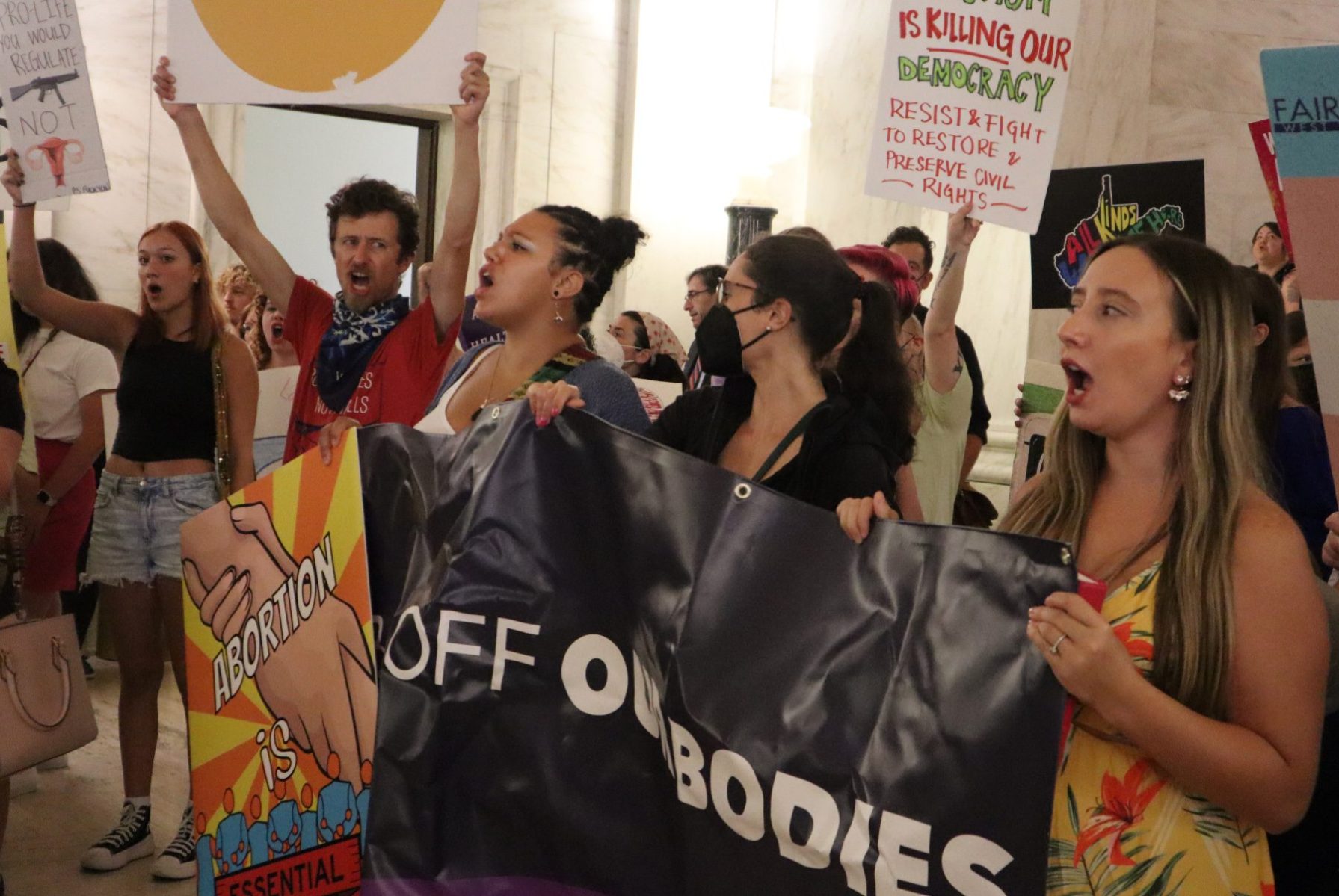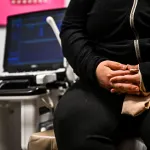Editor’s note: This article has been updated throughout.
A proposed abortion ban in West Virginia would require minors experiencing ectopic pregnancies to wait 48 hours before they could get an abortion, which doctors say could force them to delay providing care until patients are near death.
House Bill 302 which passed out of the state’s House of Delegates Wednesday with limited debate, only allows abortions in cases where “there exists a nonmedically viable fetus; there exists an ectopic pregnancy; or there exists a medical emergency.” The state Senate is expected to vote on the bill Friday. If passed, it would then go to the state’s Republican governor, who is likely to sign it into law.
But the bill also retains a restriction passed in 2017 requiring minors to wait 48 hours after their parent is notified before getting an abortion. Parents can waive that right, and minors can petition a court to bypass parental notification, but that process still may take multiple days. The waiting period requirement applies to minors seeking an abortion because of an ectopic pregnancy or if the fetus is nonviable, said Ann Ali, deputy chief of staff and a spokesperson for the West Virginia House of Delegates.
Medical professionals fear that restriction could put patients at risk.
“You’re looking at potentially having patients have to wait to get lifesaving care depending on what their particular physician or provider’s legal team says is allowed,” said Alisa Clements, director of public affairs for Planned Parenthood South Atlantic.”
Some medical providers were unsure that the waiting period would apply to abortions performed for minors where the medical risk of waiting is dire.
“It’s extremely concerning to say the least,” said Katie Quinonez, head of the Women’s Health Center of West Virginia, the state’s only abortion clinic.
In theory, the law allows abortions without a waiting period if there is a medical emergency. But the line for what constitutes such a crisis isn’t clear. A West Virginia family physician who provides abortions said that the law would undermine his ability to provide appropriate, timely care.
“It really poses for physicians the dilemma of choosing between upholding our oath to our patients, and potentially breaking the law and committing a crime and going to prison,” said the physician, who requested his name be withheld because of threats of violence made against abortion providers who work at the clinic. “What if I break the law but save my patient? And what if I don’t break the law and my patient dies? If I save my patient do I lose my medical license? And do I go to prison?”
Ectopic pregnancy is a potentially lethal condition in which a fertilized egg implants outside the pregnant person’s uterus, most often in the fallopian tube. As the fetus grows, it poses an increasing risk; a bigger fetus can cause the fallopian tube to rupture.
One out of every 50 pregnancies is ectopic, and abortion is the standard treatment. Delaying that care can lead to dangerous health complications and even be fatal, according to the American College of Obstetricians and Gynecologists. Ideally, doctors say, a patient would receive treatment the day the ectopic pregnancy is discovered.
“Any application of an abortion ban that affects those in need of treatment for ectopic pregnancy is inappropriate and will certainly cost lives,” ACOG says on its website.
Already, physicians have raised concerns about abortion bans resulting in delayed care for people experiencing medical problems. In 48 hours, a treatable health concern can become life-threatening, and with ectopic pregnancies in particular, every day counts.
“A delay in care, plain and simple, increases the risk of very serious adverse events for patients — including the risk of severe hemorrhage and death,” the West Virginia physician said.
There is no standard physician definition of what qualifies as a “medical emergency,” and as a result, exceptions to “save the life” of a pregnant person are often criticized by physicians for being misleading, ultimately barring patients from receiving appropriate medical care.
In this case, the bill text says that exception only applies when an abortion is needed “to avert the patient’s death or for which a delay [in abortion] will create serious risk of substantial and irreversible physical impairment of a major bodily function, not including psychological or emotional conditions.” The bill also provides a process for medical professionals to seek a hearing with their licensing board to justify why they provided abortion.
But physicians fear the bill’s emergency definition is not fully clear, and will force them to delay providing abortions. And the longer they wait, the greater danger the patient could be in.
“When discussing exceptions for medical emergencies — does that mean a loss of a liter of blood in an hour? Does that mean hypotension to the point of not allowing for organ perfusion? Does it mean I have to wait for the patient to be unconscious to do an abortion? I don’t know.” the physician said. “Because a medical emergency when it presents is immediately life-threatening in so many instances and already becomes a point potentially of no return in patients.”







